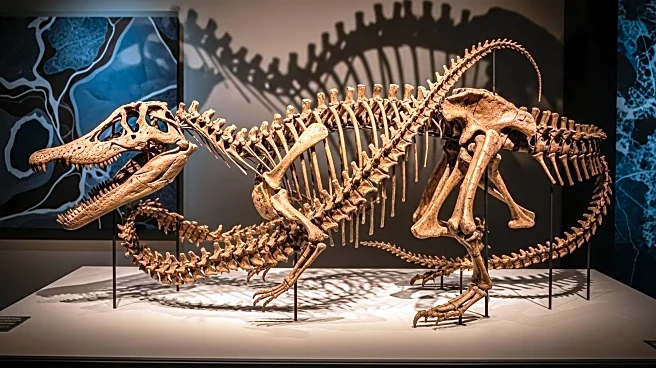What is the story about?
What's Happening?
Researchers in Argentina have uncovered a new dinosaur species, named Joaquinraptor, believed to be at least 70 million years old. The discovery was made in Patagonia, where the dinosaur's remains were found with a crocodile's arm bone in its mouth, suggesting its diet included crocodiles. The dinosaur, part of the megaraptorans group, was about 19 years old at the time of its death and measured approximately 23 feet in length, weighing over 2,000 pounds. The bones are currently held at the National University of Patagonia San Juan Bosco, with potential plans for future exhibition.
Why It's Important?
This discovery provides significant insights into the diet and lifestyle of megaraptorans, a group known for their large claws and powerful forelimbs. The presence of a crocodile bone in the dinosaur's mouth offers a rare glimpse into predator-prey interactions during the Cretaceous Period. Such findings enhance our understanding of the biodiversity and ecological dynamics of prehistoric eras, contributing to the broader field of paleontology. The discovery also highlights the rich paleontological potential of the Patagonia region, which continues to yield important scientific findings.
What's Next?
Further studies are expected to explore the living conditions and extinction factors of the Joaquinraptor. Researchers may also investigate the potential for public exhibitions of the dinosaur's remains, which could increase public interest and educational opportunities in paleontology. Additionally, ongoing excavations in the region may uncover more fossils, providing further insights into the prehistoric ecosystem.















